Apple Watch Series 2: Specs, straps and all you need to know
Apple is refreshing its smartwatch with three new features. Here are the details.
A free daily email with the biggest news stories of the day – and the best features from TheWeek.com
You are now subscribed
Your newsletter sign-up was successful
Apple Watch sales plummet by 90 per cent
8 July
Apple's latest product, the Apple Watch, has seen sales drop by more than 90 per cent in the United States just three months after its release, according to new market research.
Apple is, on average, currently selling fewer than 20,000 watches a day in the US, according to data from the California-based market research company Slice Intelligence. Watch sales peaked immediately after the device was released in April, but have fallen quickly. Some days Apple sells fewer than 10,000 watches, Slice found.
The Week
Escape your echo chamber. Get the facts behind the news, plus analysis from multiple perspectives.

Sign up for The Week's Free Newsletters
From our morning news briefing to a weekly Good News Newsletter, get the best of The Week delivered directly to your inbox.
From our morning news briefing to a weekly Good News Newsletter, get the best of The Week delivered directly to your inbox.
The research also showed that two-thirds of the watches that have been sold to date are the entry level Apple Watch Sport, which retails in the US for $349. Sales of the more expensive Apple Watch, which costs $549, makes up most of the remaining third, with the gold Apple Watch Edition accounting for a negligible proportion of sales. Fewer than 2,000 of the luxury model have been sold across the US, the report said.
If the research proves accurate, the lower than expected sales could be worrying for Apple investors. "On one hand, you'd expect sales of any new product to tumble after the initial bump... but this fall-off in sales, if confirmed, nonetheless looks ominous," says Market Watch.
The website adds: "The Apple Watch is the first completely new product the company has created and launched since the death of its visionary founder, Steve Jobs, in 2011. How well the watch fares may be one measure of how well Apple may be able to maintain the standards of excellence in innovation, marketing and production it achieved under Jobs."
Still, even if the figures are true, one should "not feel too bad for Jonny Ive and company", The Register says. The figures still show that the Apple Watch still managed to pull in $1.19bn in revenues between 10 April and 1 July.
A free daily email with the biggest news stories of the day – and the best features from TheWeek.com
Apple has not directly commented on the study.
Apple Watch 'doesn't work properly' with tattoos
29 April
Early adopters of the Apple Watch are reporting that the smartwatch doesn't work properly with tattoos.Apple Watch owners have been reporting on social media sites including Twitter and Reddit that a number of the watch's main functions, including its ability to read a user's heart rate, do not work if the watch is worn on a tattooed wrist.According to The Independent, the ink in tattoos "could stop the watch from recognising that it is being worn," which will instantly make it behave as if it has been taken off, and instantly shuts down functions such as Apple Pay.
In a video posted to YouTube, one user demonstrates how the watch's pedometer appears to work fine on his left wrist, which is tattoo-free, but doesn't work when it is worn on his tattoo-covered right wrist. It also refuses to unlock when worn on the user's tattooed wrist.

The fact that the watch might not work on tattooed wrists "shouldn't be very surprising" says The Verge. Here's how Apple explains the way that the technology works:"Blood is red because it reflects red light and absorbs green light. Apple Watch uses green LED lights paired with light‑sensitive photodiodes to detect the amount of blood flowing through your wrist at any given moment. When your heart beats, the blood flow in your wrist — and the green light absorption — is greater. Between beats, it's less. By flashing its LED lights hundreds of times per second, Apple Watch can calculate the number of times the heart beats each minute — your heart rate."
The tech blog iMore tested the Watch with a range of different tattoos and concluded that the sensor readings "varied wildly depending on colours and shading."
According to the site, large blocks of dark colour will cause more problems, while lighter tattoos will generally not affect the watch. People with dark coloured skin will be able to use the watch without any problems, though, because "natural skin pigmentation doesn't block light the same way artificial ink pigment or even scar tissue does," iMore says.
Apple has received complaints about faulty technology in the past, most recently with "Bendgate", when some users reported that their iPhone 6 and iPhone 6 Plus handsets were bending in their pocket.
Apple has not yet commented on its new smartwatch's reported difficulties with tattoos.
Apple Watch UK release: reports of shortages 'exaggerated'
24 April
The Apple Watch will go on sale in a limited number of high-end fashion boutiques today, despite the company's earlier announcement that the device would not be available in-store at launch.
What that meant, it transpires, was that no watches would be sold in Apple Stores, but only in a series of upmarket specialist stores in a series of world cities.
The decision to launch the watch in boutique stores offers "further evidence of the smartwatch's positioning as a fashion accessory, as opposed to a tech gadget", the New York Times says. It also underlines the ready availability of the device, which many commentators had suggested could be sold-out for months after its initial launch.
In fact, Apple said on Wednesday that it had begun informing customers who ordered a watch online that they could expect to receive the product sooner than previously expected.
Some analysts have speculated that Apple may have chosen to launch the device online rather than in-store to avoid the possibility that shorter queues would reveal that demand for the smartwatch was weaker than some of the company's other recent product launches.
But according to Daniel Ives from FBR Capital Markets, early sales suggest that the Apple Watch may yet turn out to be another hit for the California-based technology company.
"We are raising our Apple Watch shipment estimates for 2015 from 17 million units to 20 million units," Ives said. "We estimate sales of over two million units during the pre-sales phase alone, and believe watch revenues could contribute as much as 8 per cent of [Apple's] total revenue in 2017."
Another way the watch may contribute to Apple's revenues is by bringing Android customers into the Apple ecosystem of mobile phones, tablets, music and apps.
Carolina Milanesi, chief of research at Kantar Worldpanel ComTech, told the BBC that according to her company's surveys, "20 per cent of UK Android users and 67 per cent of French Android users would consider changing from Google's operating system to Apple's to buy the smartwatch of choice".
So is the Apple Watch a revolution that will change the way we interact with technology or just another screen to add to our collection of disposable devices?
Early reviewers' verdicts are in, and they're certainly not celebratory.
In trying to sum up his feelings about the Apple Watch, Nilay Patel, editor of The Verge, said the first-generation device suffers from attempting to be all things to all people. "There's no question that the Apple Watch is the most capable smartwatch available today," Patel said in his comprehensive review. "It is one of the most ambitious products I've ever seen; it wants to do and change so much about how we interact with technology. But that ambition robs it of focus: it can do tiny bits of everything, instead of a few things extraordinarily well."
Other reviewers are kinder, delivering their evaluations with the kind of hushed reverence to which Apple has become accustomed ahead of each product launch. Farhad Manjoo said in The New York Times: "It took three days – three long, often confusing and frustrating days – for me to fall for the Apple Watch. But once I fell, I fell hard."
So what are the smartwatch's greatest strengths and where are its weaknesses?
Form
Jonathan Ive, Apple's senior vice president of design, reportedly spent four years designing the Apple Watch, refining its technology, and working on its many customisable options. Most reviewers agree the Watch looks good and offers a plethora of different bands, materials and faces.
Patel describes the Watch as "quintessentially Apple". When you see it in the flesh, he said, it is rounder than you might expect and looks most like a first-generation iPhone. "It is unbelievably high tech and a little bit silly, a masterpiece of engineering with a Mickey Mouse face."
Manjoo agrees: "Though it looks quite smart, with a selection of stylish leather and metallic bands that make for a sharp departure from most wearable devices, the Apple Watch works like a first-generation device, with all the limitations and flaws you'd expect of brand-new technology."
Function
Surprisingly for an Apple sanctioned release, many early reviewers report the Watch can be slow and even "glitchy". Apps take too long to load, "if they load at all", said Wired.
The Daily Telegraph's head of technology, Matt Warman, said it is easily the best smartwatch on the market. "It's the first where I've consciously really wanted to make sure I'm always wearing it and that the battery doesn't run out," he said.
Geoffrey A Fowler, personal tech columnist of the Wall Street Journal, agreed. "With the Apple Watch, smartwatches finally make sense," he wrote. "The measure of their success shouldn't be how well they suck you in, but how efficiently they help you get things done. Living on your arm is part of that efficiency – as a convenient display, but also a way to measure your heart rate or pay at a cash register. This is a big idea about how we use technology, the kind of idea we expect from Apple."
Apple Watch apps
Many reviewers say that the lack of apps available at launch is a puzzling oversight. Fowler calls it "the biggest disappointment of my Apple Watch experience".
Apple says that more than 1,000 Watch apps have been submitted, but to date fewer than 50 of those have been made available to reviewers to test.
Should you buy the first Apple Watch?
Wired speculates that even as Apple is preparing its massive launch for the Watch, it is probably also already working on its successor – the Apple Watch 2. But the California-based tech company still needs the first iteration to be a success. "If consumers don't want the Watch, recouping that investment of time, money, and manpower will be for tough. While Apple may be working on other prototypes, it would need another consumer-ready design to which it could quickly pivot to shore up its losses," the publication says.
Conclusion
Joshua Topolsky, editor of Bloomberg Digital, said the Apple Watch is not perfect, but it is the best option available for anyone who is already convinced they need to have a smartwatch.
"The watch is not life-changing," he said. "It is, however, excellent. Apple will sell millions of these devices, and many people will love and obsess over them. It is a wonderful component of a big ecosystem that the company has carefully built over many years. It is more seamless and simple than any of its counterparts in the marketplace. It is, without question, the best smartwatch in the world."
Apple Watch prepares for massive launch in April
30 March
Apple is gearing up for a massive retail campaign to coincide with the launch of its first new product of the post-Steve Jobs era, including dedicated stores, a huge infrastructure rollout and the arrival of a high-profile retail chief.
Analysts are divided over whether the Apple Watch, which goes on sale on 10 April, will be a hit with consumers, but the company has prepared a wide-ranging plan to make sure the new device is a success. The smartwatch, which retails at £299 and spirals up to £13,500 for a luxury version in 18-carat gold, offers users everything from email notifications to health monitoring. It can also make phone calls, help users keep track of their calendar and sync with map software to provide directions.
Dedicated Apple Watch stores
Apple currently has 453 retail outlets worldwide and is rumoured to be building new locations in high-end department stores around the globe. Earlier this month, Apple Insider spotted a dedicated shop being built in Tokyo's trendy Isetan department store. The shop is located near luxury brands that include Boucheron, Chaumet, Mauboussin and Tiffany's.
Trusted Reviews suggests that other outlets will follow in Paris's Galeries Lafayette and the USA's Nordstrom.
New retail chief
Last year, Apple hired Angela Ahrendts, the former CEO of luxury brand Burberry Group, to help coordinate its Apple Watch launch from a retail perspective, Computer World reports.
Reports suggest that Ahrendts was offered a compensation package of $73.4 million for 2014 – a huge sum, but a tiny fraction of Apple's total investment in its first foray into wearable tech.
In-store try-on sessions
Apple is reported to be introducing a new strategy for promoting the Watch in-store once it launches in April. Starting on 10 April, customers will be offered 15-minute try-on sessions in stores. 9to5Mac.com suggests that as of next month, 75 to 90 per cent of each store's retail staff will be dedicated to helping customers with the Apple Watch. Four zones will be created in each store to help sell the watches, one offering hands-on trials, two for purchasing, and one dedicated to assisting customers with the gold Apple Watch Edition models.
'Magical' display case
Sales of the new Apple Watch will revolve around "magical display cases" where prospective customers will be able to browse the various models of the device and try them on.
According to 9to5Mac, the "user journey" will proceed as follows: you can make a "try-on appointment" either online or over the phone, or join a queue similar to the company’s Genius Bar walk-in system. When you arrive for your session, an Apple Watch specialist will take you to a specially designed table with a recessed, glass-topped cabinet, in which watches which will be giving what Apple describes as "a magical display" – a pre-programmed demo loop showing off the their main features. You can select two models to examine more closely, and will then be ushered into a "try-on area", before being offered additional accessories such as bands, Bluetooth headphones and chargers.
If you made an appointment, you can take home your chosen device immediately after purchase. Walk-in customers will have to reserve a watch and collect it later. At launch, Apple won't have enough stock for customers without reservations, 9to5mac reports.
If you are buying a premium Watch Edition model, the process will be more akin to buying an expensive Swiss watch, with longer, private appointments held in a dedicated part of the store.
Industry 'game changer'
According to Tim Bajarin, a leading industry analyst, the Apple Watch will be a "game changer" that will have a one- or two-year head start over its rivals because it will be "nearly impossible for watchmakers to replicate".
Apple owns the hardware, software and services that make the Watch appealing, so unlike the early 1980s, when digital watches "flooded the scene (but) were easily copied" Apple will be able to sell a "unique" product.
"What Apple is ultimately bringing to the watch market is a redefinition of what a watch is," Bajarin says. "The watch folks use the term 'wrist computer.'"
Claims of production problems 'overblown'
Rumours of production issues ahead of the launch of the Watch have been exaggerated, a source told Apple Insider. There may be some initial supply problems, the source said, but Apple's management is prepared for them and expect that they will be relatively easily overcome.
Blast-proof safes
Apple has massively boosted its security to help protect against theft of the valuable devices, some of which are made of 18-carat gold. "It stands to reason that Apple has taken all kinds of other steps to ensure the security of the watches," Computer World notes. "After all, 100 of the cheapest gold models of the Apple Watch would have a collective retail value of $1 million".
-
 TikTok: New owners, same risks
TikTok: New owners, same risksFeature What are Larry Ellison’s plans for TikTok US?
-
 Political cartoons for February 5
Political cartoons for February 5Cartoons Thursday’s political cartoons include sticks and stones, the wake of nationalized elections, and more
-
 Epstein files topple law CEO, roil UK government
Epstein files topple law CEO, roil UK governmentSpeed Read Peter Mandelson, Britain’s former ambassador to the US, is caught up in the scandal
-
 Is Apple’s Tim Cook about to retire?
Is Apple’s Tim Cook about to retire?Today's Big Question A departure could come early next year
-
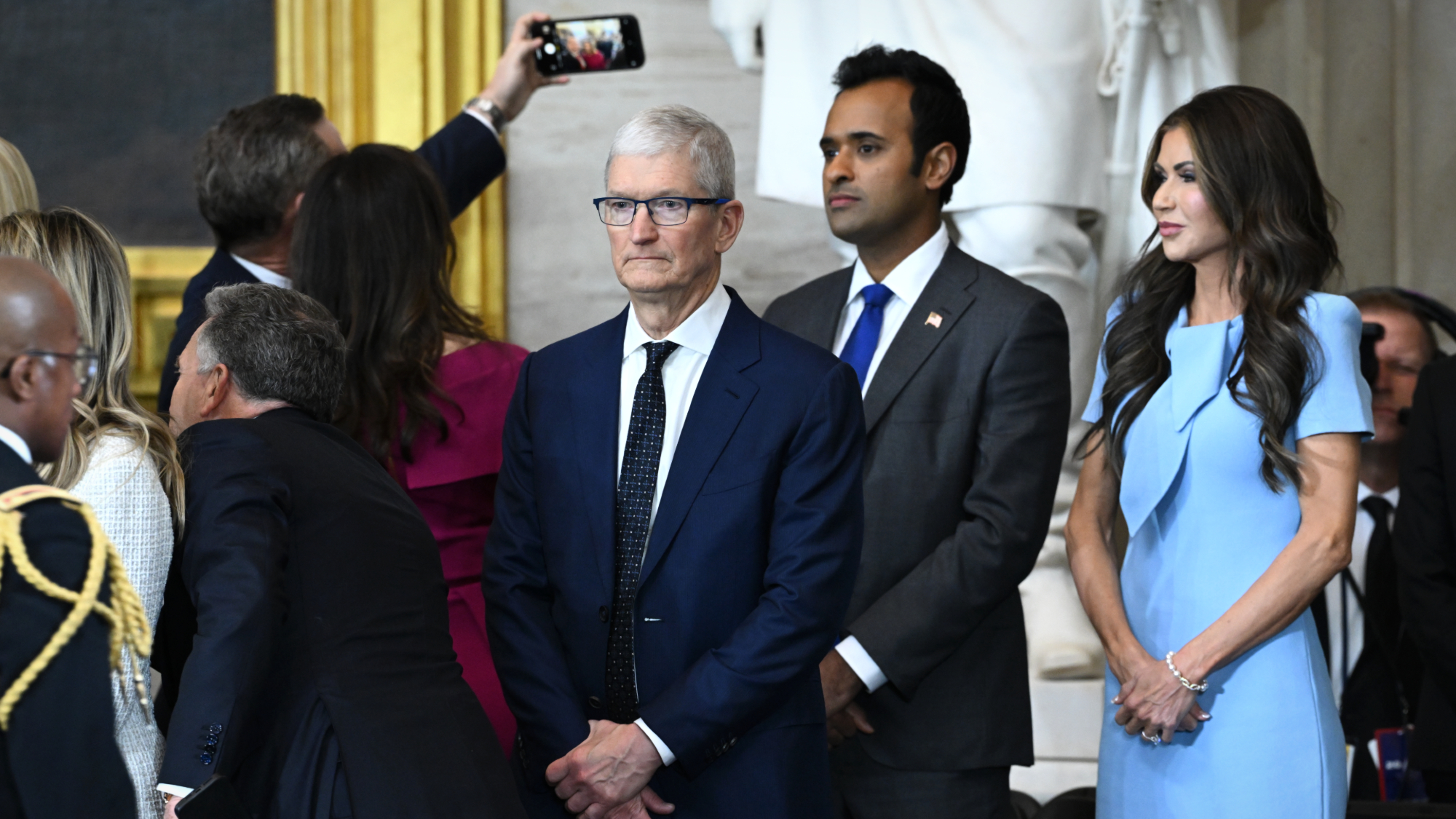 Apple pledges $500B in US spending over 4 years
Apple pledges $500B in US spending over 4 yearsSpeed Read This is a win for Trump, who has pushed to move manufacturing back to the US
-
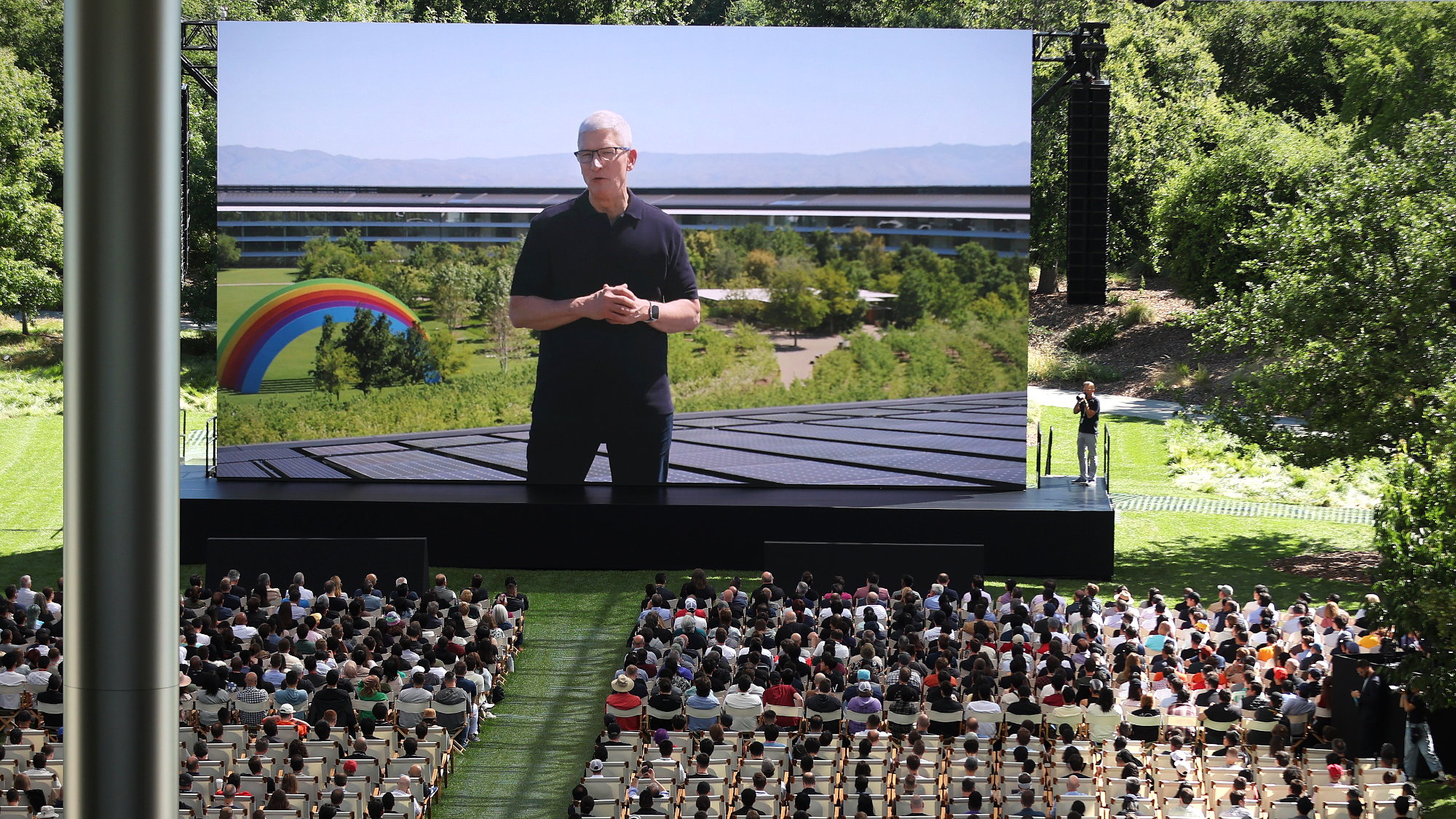 Apple unveils AI integration, ChatGPT partnership
Apple unveils AI integration, ChatGPT partnershipSpeed Read AI capabilities will be added to a bulked-up Siri and other apps, in partnership with OpenAI's ChatGPT
-
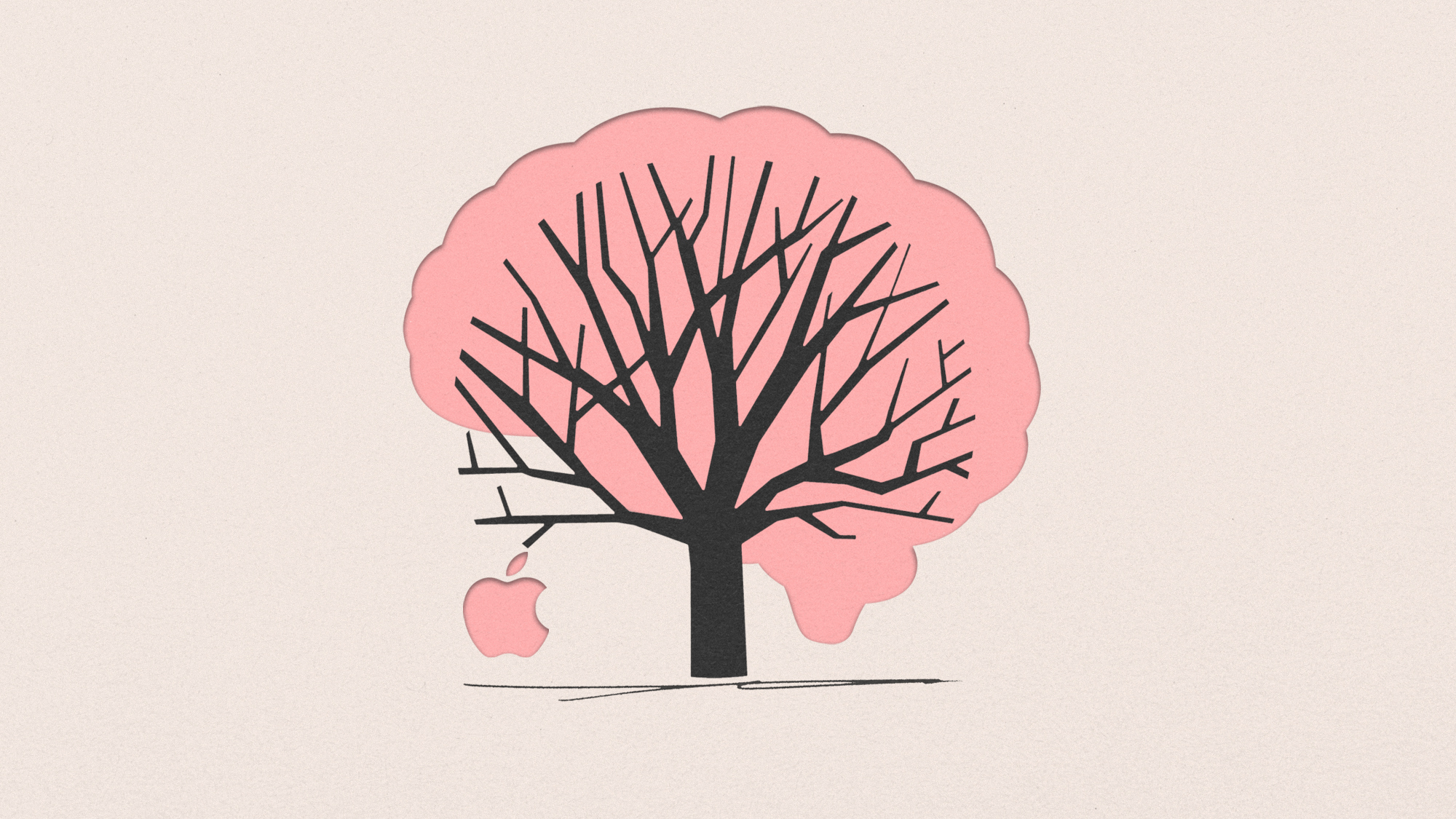 Apple Intelligence: iPhone maker set to overhaul the AI experience
Apple Intelligence: iPhone maker set to overhaul the AI experienceIn the Spotlight A 'top-to-bottom makeover of the iPhone' sees the tech giant try to win the consumer AI game
-
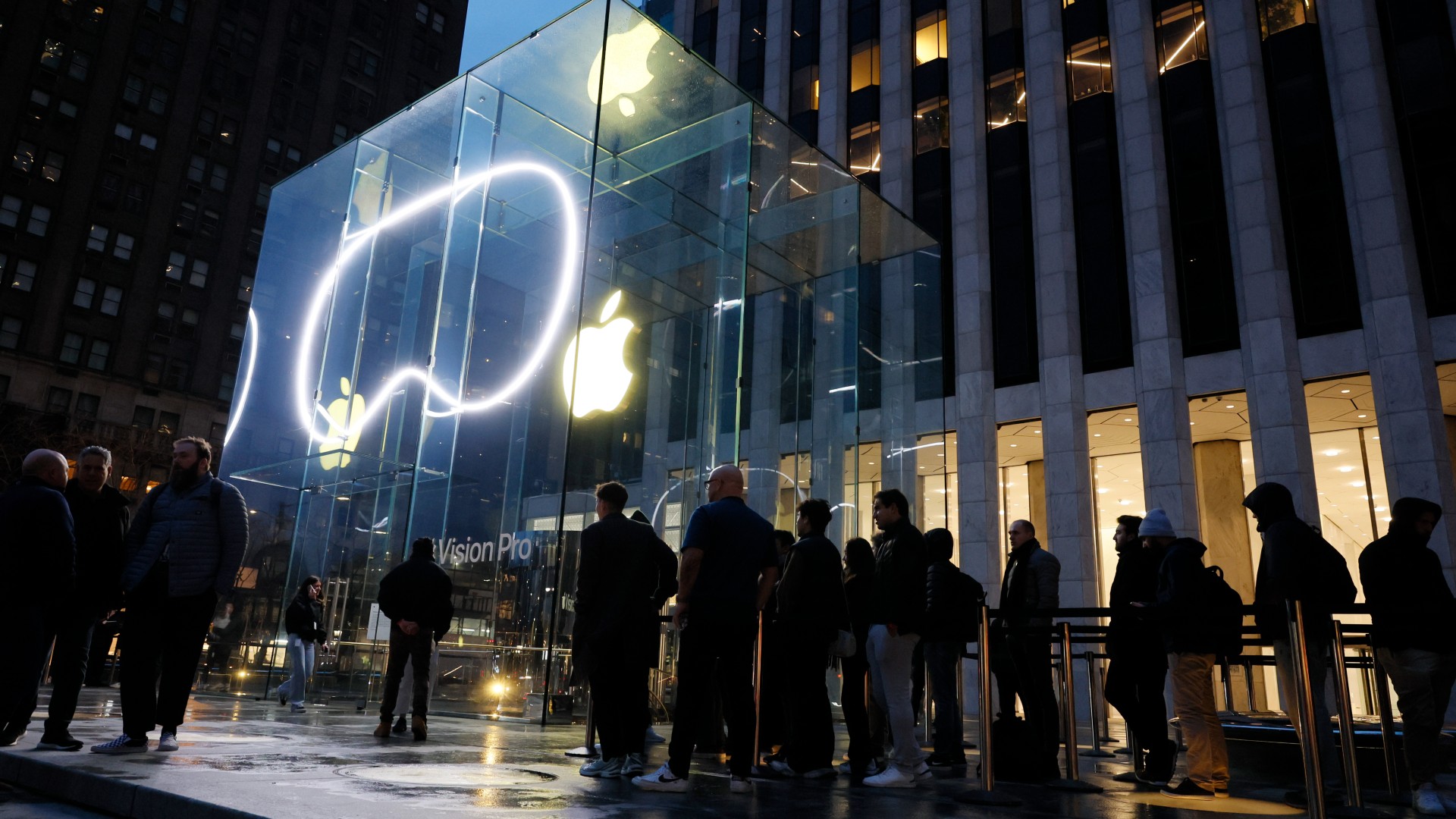 The Apple Vision Pro's dystopian debut
The Apple Vision Pro's dystopian debutIn the Spotlight Is "spatial computing" the next big thing?
-
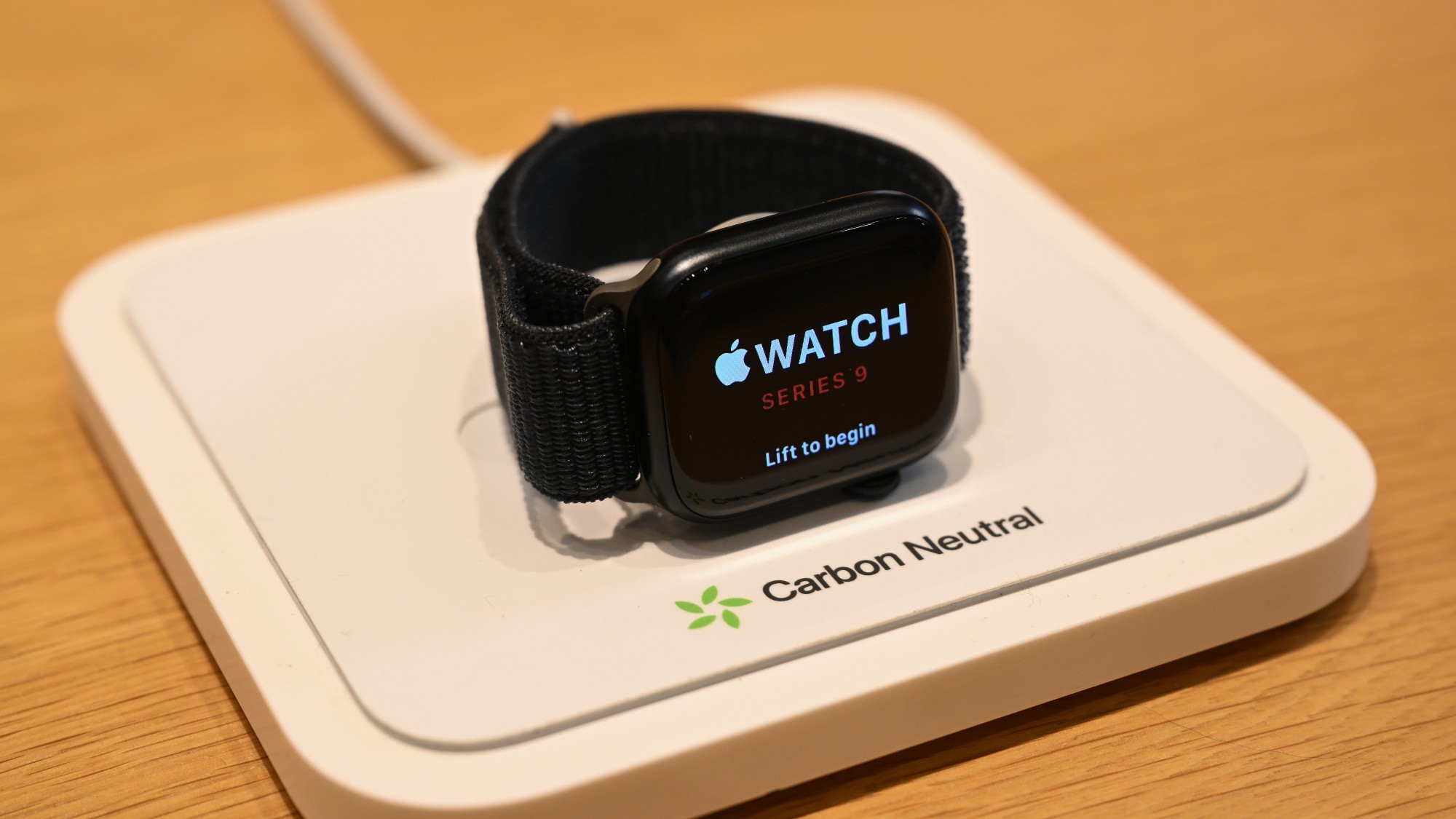 Why Apple's carbon-neutral claims may be misleading
Why Apple's carbon-neutral claims may be misleadingSpeed Read The company isn't disclosing all the information, a new report alleges
-
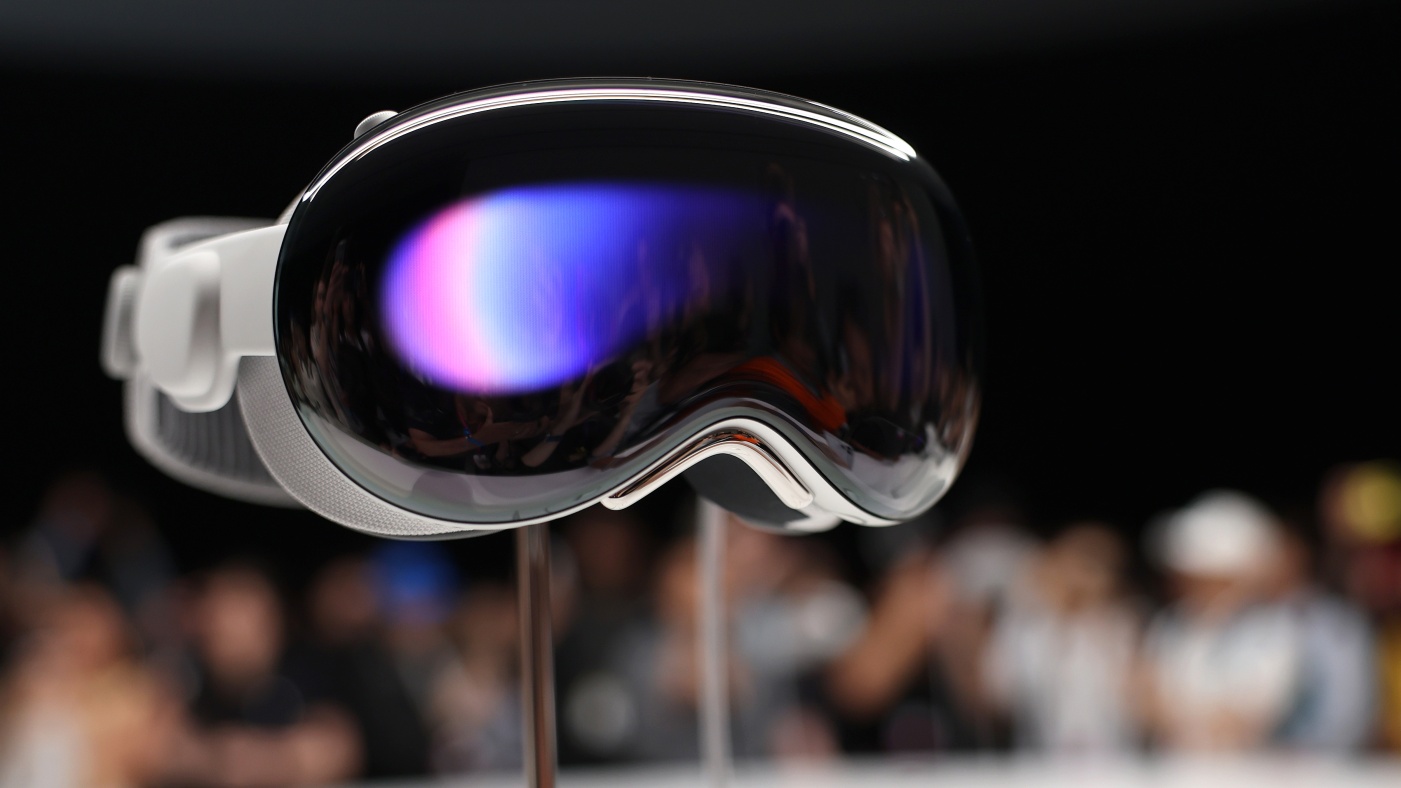 Apple’s Vision Pro: is the VR future finally here?
Apple’s Vision Pro: is the VR future finally here?Talking Point The ‘mixed reality’ headset could redefine how we use personal devices
-
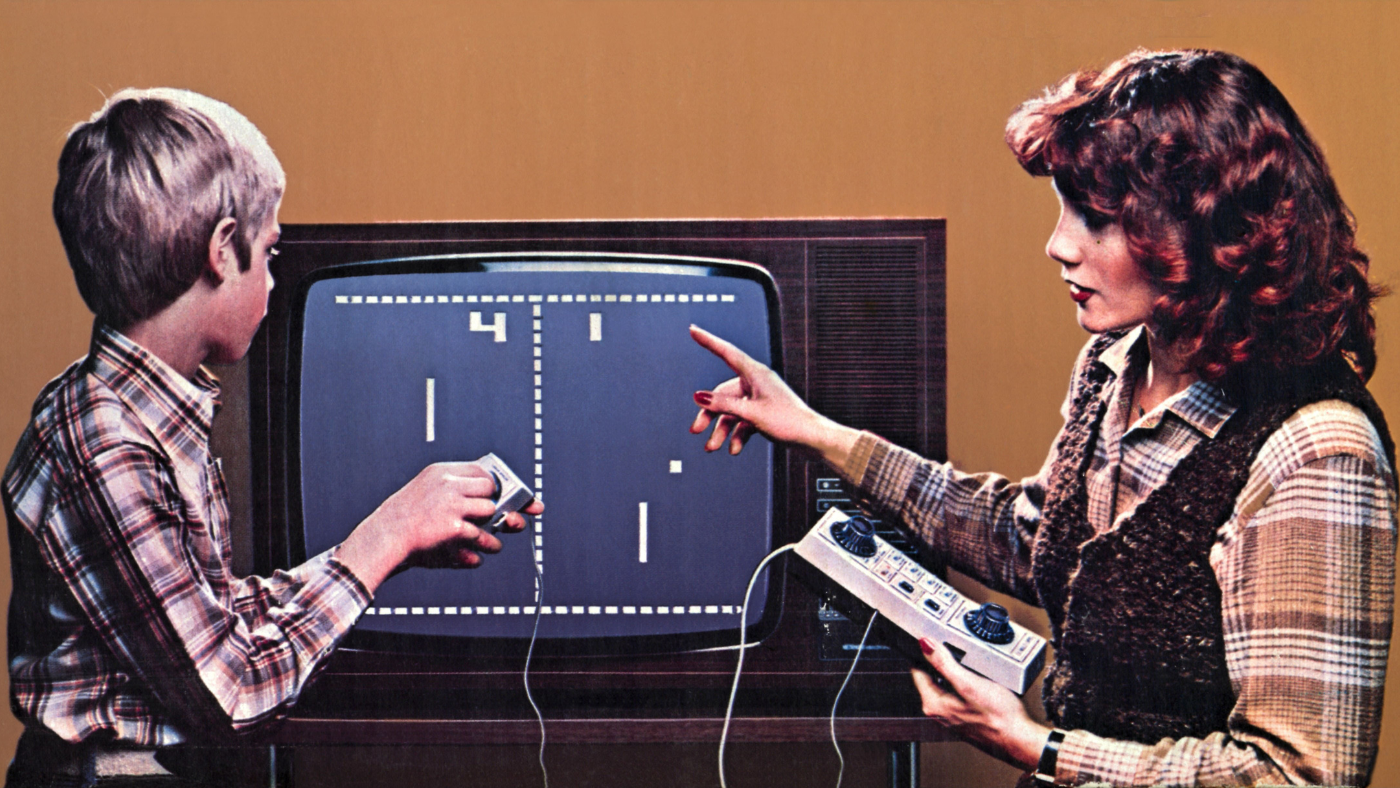 Pong at 50: the video game that ‘changed the world’
Pong at 50: the video game that ‘changed the world’Under the Radar Atari’s breakthrough invention remains a ‘touchstone’ in the history of gaming